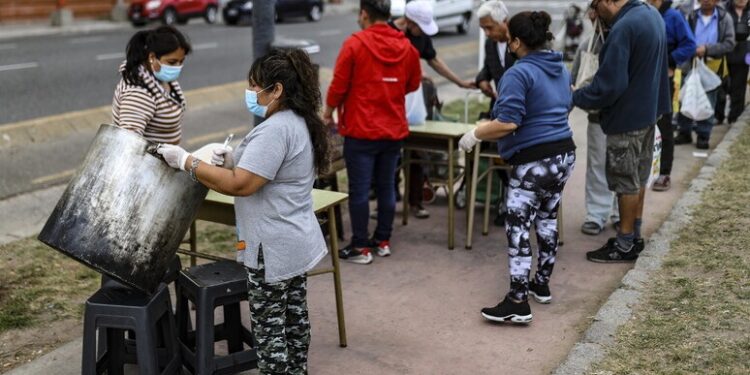The government of Javier Milei in Argentina has found itself embroiled in a food aid scandal as the distribution of 5,000 tons of stored food aid, which had been mired in irregularities and mismanagement, commences amidst a cloud of controversy. An investigation into storage irregularities has been initiated, shedding light on a series of errors that have raised concerns and prompted a judicial inquiry into the matter.
The government has launched the distribution of the stored food aid, housed in two warehouses of the Ministry of Human Capital, with the Argentine Army entrusted with the task of disbursing the aid in a swift manner. The urgency of the situation stems from the impending expiration of a substantial portion of the food supplies, underscoring the critical need for immediate action to ensure that the aid reaches those in need in a timely manner. The NGO Conin, renowned for its extensive network of over 100 centers across the country, has been designated as the recipient of the aid, tasked with facilitating its distribution to social canteens and vulnerable communities.
Acknowledging the lapses in management that led to the prolonged storage of the food aid, a press release from Minister Sandra Pettovello attributed the oversight to “officials and employees failing to conduct regular stock checks and monitor the expiry dates of the goods.” The government had initially faced criticism and denials regarding the delayed distribution of the aid and the concerning proximity of the food to its expiration date, prompting swift corrective action to address the pressing humanitarian issue.
However, the controversy surrounding the food aid scandal further deepened with the resignation of the Secretary for Children and Adolescents, Pablo de la Torre, in response to the unfolding debacle. De la Torre’s resignation was accompanied by accusations of his involvement in the mismanagement of the food supplies, as well as allegations of irregularities in food procurement processes and the disbursement of salaries to ministry-contracted personnel. The government found itself entangled in a web of allegations and legal challenges, with a judicial injunction sought to facilitate the distribution of the aid following complaints lodged by social leader Juan Grabois.
As the distribution of the food aid progresses and the investigation into the storage irregularities unfolds, the Milei government faces mounting scrutiny and calls for accountability in the handling of essential aid intended for vulnerable populations. The unfolding scandal serves as a stark reminder of the critical importance of transparent and accountable governance in ensuring the effective delivery of crucial humanitarian assistance to those in need.














































